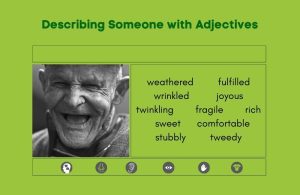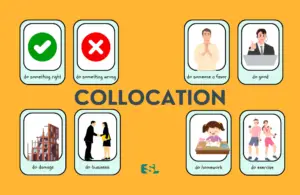Shopping and consumerism form a significant part of our daily lives, whether it involves buying groceries, clothes, electronics, or indulging in online shopping. Having a good command of related vocabulary can enhance our shopping experience and improve our understanding of consumer behaviors.
This article will guide you through some essential vocabulary related to shopping and consumerism. The categorized words and phrases are crucial for anyone interested in enhancing their English language skills in this particular field.
Table of Contents
- 1. Types of Stores
- 2. Shopping Actions and Experiences
- 3. Online Shopping Terms
- Sample Conversation: Using Vocabulary Related to Shopping and Consumerism
- Conclusion
- FAQ: Vocabulary Related to Shopping and Consumerism
1. Types of Stores
There are various types of stores to cater to the diverse shopping needs of consumers. Below are the most commonly used terms for different retail outlet types.
| Word/Phrase | Meaning/Usage | Example Sentences |
|---|---|---|
| Supermarket | A large self-service shop selling foods and household goods | “I need to go to the supermarket and buy some groceries.” |
| Boutique | A small store selling fashionable clothes or accessories | “She bought that dress from a boutique downtown.” |
| Department store | A large shop stocking many varieties of goods in different departments | “I got these shoes from the footwear department in the department store.” |
| Pharmacy | A shop where medicinal drugs are dispensed | “Can you pick up my prescription from the pharmacy?” |
| Convenience store | A small store that is open long hours and that typically sells staple groceries, snacks, and beverage | “I need to stop at the convenience store and get some milk.” |
| Flea market | A market, usually taking place outside, where old or used goods are sold cheaply | “You can find some unique items at the flea market.” |
| Bookstore | A shop where books are sold | “I could spend hours in a bookstore.” |
| Grocery store | A store that sells food and other items used in the home | “We need to do a big grocery store run this weekend.” |
| Online store | A virtual store on the internet where customers can browse for and purchase products | “I bought this gadget from an online store.” |
| Outlet store | A store in which manufacturers sell their stock directly to the public | “There are many brand-name outlet stores in this shopping center.” |
| Specialty store | A retail store that carries a narrow product line with a deep assortment within that line | “I went to a specialty store to buy organic food products.” |
| Thrift store | A shop that sells used goods at low prices, often for charity | “I found this vintage jacket at a thrift store.” |
To elevate your vocabulary in just 30 days, I recommend to my students an informative, fun, and accessible guide to utilizing powerful language. Millions of individuals have enhanced their academics, job skills, and confidence by dedicating just fifteen minutes daily to the exercises and tests of 30 Days to a More Powerful Vocabulary (Amazon Link), a top-selling. It offers step-by-step methods to bolster language prowess, discover compelling words, and daily vocabulary enhancement with pronunciation guidance.
2. Shopping Actions and Experiences
Shopping involves a series of actions, from browsing to checking out. Here are some common words associated with shopping actions and experiences.
| Word/Phrase | Meaning/Usage | Example Sentences |
|---|---|---|
| Browse | Look through a range of items casually | “I like to browse through the book section whenever I’m at a store.” |
| Purchase | To buy something | “I decided to purchase the blue sweater.” |
| Bargain | A thing bought or offered for sale more cheaply than is usual or expected | “I found a real bargain in the clearance section.” |
| Try on | Put on clothing to see if it fits | “I’m going to try on these jeans to see if they fit.” |
| Checkout | The place or process where goods are paid for in a store | “I’m at the checkout, do you need anything else?” |
| Discount | A reduction in the usual price of something | “There’s a 20% discount on all clothing items today.” |
| Sale | A period during which a retailer sells goods at reduced prices | “There’s a big sale on at the mall this weekend.” |
| Refund | The act of returning money previously paid for goods or services | “The store refused to give me a refund.” |
| Exchange | To give something and receive something of the same kind in return | “I need to exchange these shoes for a smaller size.” |
| Receipt | A written acknowledgement of having received money or goods | “Keep your receipt in case you want to return the item.” |
| Window shopping | Looking at items in shop windows, typically with no intention of buying anything | “I spent the afternoon window shopping.” |
| Shoplift | To steal goods from a shop while pretending to be a customer | “Security cameras help deter people from trying to shoplift.” |
3. Online Shopping Terms
Online shopping has become a part of our everyday lives. Here are some commonly used terms related to online shopping.
| Word/Phrase | Meaning/Usage | Example Sentences |
|---|---|---|
| E-commerce | Commercial transactions conducted electronically on the Internet | “E-commerce has seen a surge in recent years.” |
| Add to cart | To choose an item to buy online | “I added the book to my cart, but I haven’t checked out yet.” |
| Checkout | The process of paying for items online | “I’m about to checkout and pay for my items.” |
| Wishlist | A list of desired but often realistically unobtainable items | “I added the new book release to my wishlist.” |
| Cyber Monday | The Monday after Thanksgiving when online retailers offer major discounts | “I’m waiting for Cyber Monday to get the best deals.” |
| Flash sale | A sale lasting for only a short period of time | “I got a great deal in the flash sale.” |
| Customer reviews | Feedback from people who have bought and used a product | “I always read customer reviews before buying a product online.” |
| Shipping | The process of transporting an item, usually through the mail | “Free shipping is one of the best incentives for me to buy a product online.” |
| Digital coupon | A digital version of a traditional print coupon | “I found a digital coupon for 20% off.” |
| Secure payment | A payment method that is designed to ensure the safety of money transfers | “I always look for secure payment options when shopping online.” |
| Return policy | The rules a retailer establishes concerning the return of goods by customers | “Before I purchase anything, I check the store’s return policy.” |
| Order tracking | The ability to monitor the progress of goods being shipped | “I’m constantly checking the order tracking to see when my package will arrive.” |
If you are searching for an effective English language vocabulary builder, try Word Power Made Easy: The Complete Handbook for Building a Superior Vocabulary (Amazon Link). This time-tested classic has helped millions achieve mastery of English and improve their communication skills in business, the classroom, and in life.
Sample Conversation: Using Vocabulary Related to Shopping and Consumerism
Situation: While sipping coffee in a downtown café, Rita and Neil discuss their recent shopping experiences and the latest trends in consumerism.
Rita: Neil, I’ve been on a bit of a “shopping spree” lately. The “end-of-season sales” are just too tempting!
Neil: I get that, Rita. I’ve been scouting for some “discounts” too. But with all the “advertisements” everywhere, it’s hard to figure out which “deals” are genuinely good.
Rita: True. Last week, I was “browsing” online and came across a “flash sale”. I got some trendy “accessories” at half the price!
Neil: That’s a steal! I usually rely on “customer reviews” before making any purchase, especially online. Helps me avoid “impulse buying”.
Rita: Smart move. I’ve been trying to be more “conscious” about my shopping habits, focusing more on “sustainability” and “ethical brands”.
Neil: That’s commendable. “Consumer awareness” about such issues is indeed growing. We all need to be more responsible in our “consumption patterns”.
Conclusion
The vocabulary related to shopping and consumerism is extensive and continually evolving, especially with the rapid growth of online shopping. This guide provides a foundation for understanding the essential terminology.
Whether you are a language learner or just someone interested in expanding your vocabulary, this knowledge will undoubtedly come in handy in your daily life. The next time you go shopping, try to recall and use some of these words and phrases.
FAQ: Vocabulary Related to Shopping and Consumerism
1. What is a “shopping spree”?
A “shopping spree” refers to a short period during which someone buys a large amount of items, often more than intended, usually because of the excitement or the perceived value of discounts.
2. How do “end-of-season sales” work?
“End-of-season sales” are discounts offered by retailers at the end of a particular season to clear out inventory and make room for the next season’s merchandise.
3. Why are “advertisements” influential in shopping decisions?
“Advertisements” promote products or services, highlighting their features and benefits, and can persuade consumers to make purchases based on perceived needs or desires.
4. What’s a “flash sale”?
A “flash sale” is a promotion offering substantial discounts on items for a very short period, often used to boost sales or clear stock.
5. How do “customer reviews” impact online shopping?
“Customer reviews” provide feedback from individuals who’ve purchased the product, offering insights into its quality, functionality, and value. These reviews can influence other potential buyers’ decisions.
6. What is “impulse buying”?
“Impulse buying” refers to making unplanned purchases based on sudden urges or attractions to a product, often influenced by marketing tactics or promotions.
7. How does “sustainability” relate to shopping?
“Sustainability” in shopping refers to buying products that are produced and used in ways that have a minimal negative impact on the environment, society, and economy.
8. Why are “ethical brands” gaining popularity?
“Ethical brands” prioritize moral values, ensuring their products are sourced, produced, and sold responsibly. As consumer awareness grows, there’s a rising demand for such brands.
9. What is “consumer awareness”?
“Consumer awareness” refers to the understanding and knowledge that buyers should have about a product before buying it, including its pros and cons, the alternatives available, and any ethical or sustainability concerns.
10. Why is it essential to be mindful of “consumption patterns”?
Being mindful of “consumption patterns” helps individuals make informed and responsible purchasing decisions, ensuring that they buy products that align with their values and the greater good of society and the environment.






